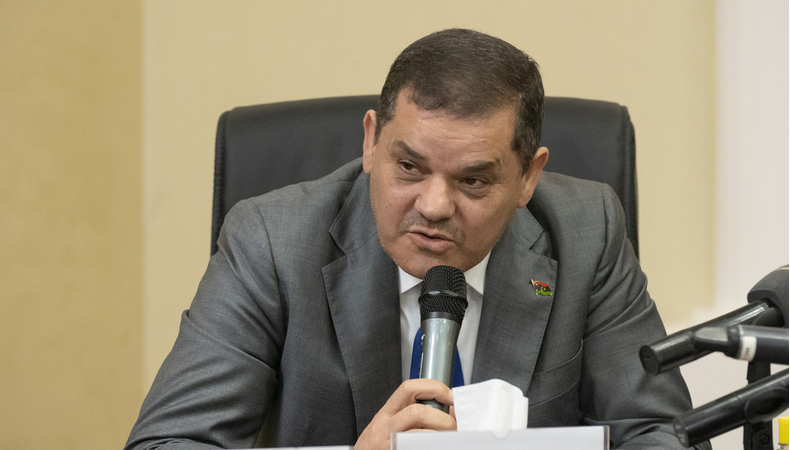Haftar’s Libyan army prevents the Prime Minister’s visit to Benghazi, the end of an illusion?

The Prime Minister of the National Unity Government of Libya, Abdul Hamid Al-Dabeibah, commented that the third meeting of the Council of Ministers was not held on Monday in the city of Benghazi, the capital of Cyrenaica.
“There are still those who have not understood that we have a historic opportunity to work to welcome the Libyan diaspora and establish a royal state that preserves our pride and dignity,” said Dabeibah, speaking at the Council of Ministers which took place last night in the capital Tripoli. The premier went on to say that “the third meeting should have been held in beloved Benghazi, the city that lives in the hearts of all Libyans. Our people say goodbye to Benghazi and we tell them that we will visit them very soon.”
Few in Libya believed the illusion that the grace period of Abdul Hamid Dabeibah’s new government could last long. But even the most pessimistic did not expect the knots to come to a head so quickly. Dabeibah’s failed meeting yesterday with General Khalifa Haftar marks the end of the mirage that the country could be reunified quickly thanks to the guarantees of financial aid and the distribution of public offices and work in state-owned companies.
It was Haftar’s military who blocked the arrival of the premier’s security officers at Benghazi airport with machine guns. In Tripoli, it was hoped that the two would, among other things, negotiate the birth of a single army with “the strongman of Cyrenaica” in the command position. Dabeibah intended to offer government posts to Haftar’s sons and his generals. In summary: if the meeting was to sanction the overcoming of the rupture between Tripolitania and Cyrenaica, its failure, on the other hand, underlines its permanence and weakens the hopes of compromise.
Read more : Over 130 migrants died in another shipwreck off the Libyan coast, it is a hunt for responsibility
An evolution that also weakens the expectations of European soft power, with the Italian effort to place itself in the position of privileged interlocutor thanks to the presence of Eni and large economic cooperation projects. To underline the difficulties and instead recall the still dominant role of military powers such as Turkey, Russia, Egypt, and the militias linked to the Muslim Brotherhood, is the growing criticism against the Foreign Minister, Najla Mangoush, who Dabeibah had expressly chosen a woman to foster dialogue with Europe.
The last Thursday’s declaration in Rome in favor of the withdrawal from Libya “of all foreign forces and mercenaries” was read in Tripoli as directed against the Turkish military presence. And this unleashes the anger of pro-Ankara factions against both Haftar and privileged ties with Europe.




